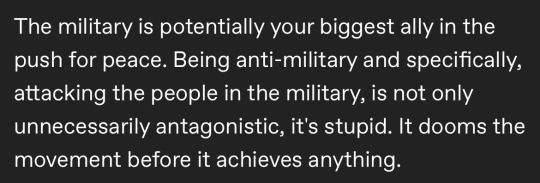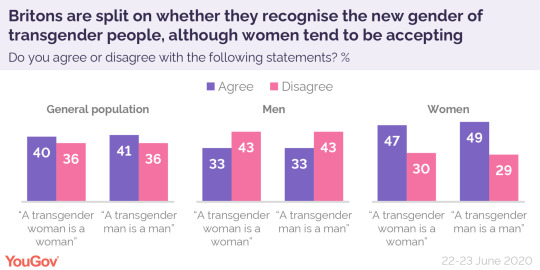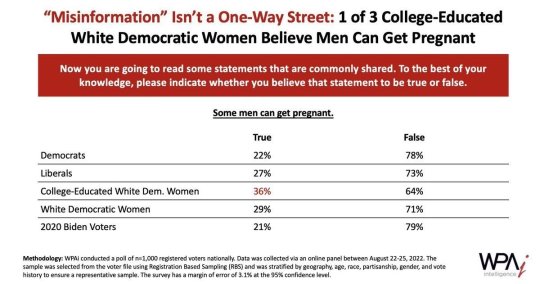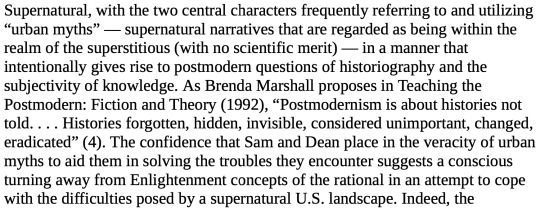#western ideology
Explore tagged Tumblr posts
Text
[...]
In Ukraine, the West has some intellectual understanding that the war is a war of attrition, but the power of the WSC discourse is such that this is frequently lost sight of. In many ways this isn’t surprising. The WSC—the Liberal mindset at war—looks at conflict as it looks at everything: from a lofty position of complete understanding, based on the universal applicability of a priori normative assumptions. The Liberal mindset as a whole, recall, sees itself as “practical”, and scorns long study and detailed analysis. It sees learning for its own sake as largely pointless, since it knows all the important answers anyway. Universities are only important for acquiring certificates an knowing where to find the detail: technical training is a joke, and for inferior mortals. So Liberal society admires the smart person rather than the intelligent, the quick-witted rather than the expert, the advocate who argues well on the basis of a quick scan, rather than the academic expert with deep knowledge.. It exalts the financier who makes a fortune out of speculating in pharmaceutical stocks above the doctors and researchers who have actually done the work.
The Liberal mindset is thus resistant to learning and the analysis of experience, not least because that might force a modification of some a priori ideas. And these ideas tend to be normative, emotional and moralistic. That’s not surprising: anyone with even a faint acquaintance with psychological research on decision-making knows that our fundamental decisions and opinions are overwhelmingly initially arrived at in the unconscious mind first. The conscious mind seems to function largely as a mechanism for providing an intellectual and rational gloss to opinions already formulated on subjective and emotional grounds. So the Liberal mind, uninterested in detail, unwilling to learn, and working from largely-arbitrary a priori ideas, responds emotionally and often angrily, to ideas and even facts that challenge its gut reactions. Don’t confuse me with facts, I know what I think, as the late Mrs Thatcher said on more than one occasion.
I’ve pointed out a number of times that the Liberal mind, in its many, often conflicting, forms, is inherently normative and moralising. This means that it responds to questions, debate and criticism not by engaging with the issues, but by shrill personal attacks on those who disagree. There’s nothing more satisfying and addictive, after all, than the feeling that you are superior to others by virtue of your normative assumptions, and that you you therefore think and speak on a higher plane than those who would try to confuse you with facts. This seems to be a universal tendency within the factions of the Western Security Complex, for all its internal incoherence : I have, for example, never seen a thoughtful and carefully argued piece of WSC punditry on Ukraine, and I don’t expect to see one on Gaza. A superior attitude of moral and normative judgement does service instead, and relieves you of the need to actually know, and even more learn, things.
So try to explain the tangled history of Ukraine and Russia since 1991, and you are a Putin-loving Russian agent. Try to explain the background to the recent coups in West Africa, and you are an apologist for neoimperialism. Try to explain the probable causes of the Hamas attack, and you are a sympathiser with baby-killers. Some of you may already have had exchanges like the following:
So why do you think this attack took place?
A combination of fifteen years of imprisonment and sanctions, and a sense of betrayal by Saudi Arabia and other Arab states.
But you can’t possibly say that justifies all this killing!
We’re not talking about justifications, but explanations.
So you refuse to condemn Hamas then?
You asked me why I thought the attacks took place.
Ah, you must support Hamas.
The advantage of this kind of ad hominem, normative approach is precisely that you don’t need to know anything: indeed, knowledge itself is suspect because it might eat away at your sense of moral and intellectual superiority. Practitioners of this tactic feel (or seem to feel) the certainty of Knowledge about the world that we associate with revealed truth, or the writings of the Gnostics. It follows that everything contrary that cannot be denied can be, and must be, assimilated to this Knowledge, which is a scheme of thought (?) forcibly imposed onto a complicated world. Those who Know, for example, that Washington is behind everything of importance that happens in the world have already decided that the war in Gaza must have been carefully planned by Biden and Netanyahu to provide an excuse for, well, let’s say attacking Iran. All contrary evidence can simply be dismissed as Iranian/Russian propaganda that the rest of us are stupid enough to accept, or very clever western disinformation. And those who Know that evil must be fought wherever it happens, looked at one video from Gaza, freaked out and demanded that the Palestinians be punished. Don’t confuse me with facts, I know what I think.
The Liberal tendency to impose prefabricated schemes on the world based on selective and often erroneous moralised readings of the past, and a priori assumptions about how the world works, has been fully on display in Ukraine, and I’ll therefore go through that in a bit of detail, with side-glances elsewhere. Let’s look first at the nature of the fighting itself (the theatre), then the wider strategic questions related to Europe and the West, then the strategic questions at the level of the world itself. In each case, it will be clear that the WSC is right out of its depth, and has no real idea what’s going on.
First of all, let’s look at Russian tactics and military objectives. Because the WSC can only conceive of others doing what it already knows about and has practised, it follows that other nations must in fact be doing what the West would do, even if they say they are not, and there’s no evidence that they are. The image the West has of large-scale military operations is pretty much limited to Gulf War 2,0, with its rapid movement of armoured units and capture of territory. For pundits, including military ones, that’s pretty much all they know, so it follows that it must have been what the Russians were planning in 2021. The fact that the Russians did not capture much territory therefore means that they failed. It doesn’t matter how many times the Russians explain that their concept of operations has nothing in it about capturing territory: they must be lying or simply wrong. So the WSC is convinced that the Russians were seeking a reply of Gulf War 2,0 and it failed.
But then there is talk of attrition warfare. We think we know what attrition warfare is: it was the terrible waste of life for no strategic gain that characterised World War 1, or at least 1915-17 on the Western Front. So in this case the Russians are like the Germans of 1914 who attempted to win the war by large-scale manoeuvre operations and failed, and then dug in. At which point the Russians then become the British and French, engaging in pointless attritional attacks, except that they aren’t really the Allies, they are the Germans, because everybody knows that in 2023 they are defending, except how can you engage in attritional warfare if you are defending, so they must in fact be attacking, which means that they must be suffering enormous casualties (60,000 casualties on the first day of the Somme in 1916, remember?) which means Russian Generals must be callous monsters trying to overwhelm the Ukrainians by human wave attacks, even if there’s no evidence of that actually happening. Trying to explain to a WSC pundit how an Army can have a posture of operational offense and tactical defence means that you are a buddy of Putin. Trying to explain what Hamas is up to militarily would cause the WSC’s collective head to explode, although if they had been paying attention they would already have looked at the tactics of ISIS in Iraq. Don’t confuse me with facts, I know what I think.
Because we know a lot about the Russian Army, or we think we do. There were all those popular histories of the eastern front in World War 2, written from interviews with German generals. Oh, and Stalin’s purges and the catastrophes of 1941, and the terror of the Red Army advancing into Germany in 1945, and Afghanistan, and then it all went wrong in the 1990s, and there were the Chechen Wars and nothing much has happened since, and the Russians are undisciplined barbarians who can’t stand up to western-trained forces operating western equipment. So if they haven’t collapsed they soon will. And of course the Ukrainian people will soon rise up against the conquerors and take to the deserts and mountains of Ukraine, forming tribal militias as they did in Afghanistan. Or something. Don’t confuse me with facts, I know what I think.
What’s clear for those with eyes to see is that the War is taking off in ways it has no right to. Drones and precision missiles, to name the most obvious, have changed everything. But the WSC, incapable by definition of learning anything, is simply helpless in front of all this, and so talks about what it knows and understands. A retired Major General from a western Army may perhaps have commanded a battalion on actual operations, and seen platoon-level actions, using small arms and light weapons with air support. Few western nations are actually capable of deploying a functioning Brigade-sized unit on operations, whereas the Russians have been chewing up whole Brigades recently. So people talk about what they know: capturing a village, attacking a bridge, attacking an airfield, daring special forces operations. All these are peripheral to a war of deliberate attrition, where the Russian aim is to grind down the Ukrainian forces and then move forward, as they did against the Germans eighty years ago. It’s impossible for western military experts (OK, that’s controversial, I know) to actually conceive of a war in which Ukraine has lost more men killed than the entire active and reserve strength of any European military. Even on the Russian side, and taking the most-likely figure of 30,000 dead, then with those casualties, as well as the severely wounded, the British Army of today would cease to exist.
The link to the higher levels is clear enough. The WSC certainly has long-term aspirations but it’s incapable of carrying out long-term plans. It’s fixated on the next move, whilst the Russians are busy re-designing the chessboard. The Russian view has been consistent for fifteen years, and has almost certainly hardened substantially over the last year and a half. They want the US out of Europe, Europe itself quiescent and respectful, and a large, disarmed area that they control, between them and the nearest western military power. This is an investment for the next twenty-five years, at least, and if it takes a bit of time, it takes a bit of time. Ukraine in a sense is collateral damage in all of this, since the Russians probably have no very precise idea of what they want there, so long as it is consistent with the overall plan. And rather than trying to understand what that plan might be, the WSC ignores that level entirely, and toasts the capture of a village, the destruction of an aircraft and the despatch of a clapped-out howitzer, as though these things were important. If they think of the higher level at all, it’s in the context of fantasies of the attempted re-creation of the Soviet Union. But don’t confuse me with facts, I know what I think.
And finally, even the new security order in Europe that the Russians are seeking to establish is only part of the ultimate goal: a world where political, military and economic power is more evenly distributed than it is now, and there is no hegemony. Moreover, it is a goal that they broadly share with other nations, with whom they cooperate on certain issues, to the extent that the various nations find it useful: a relatively subtle concept the WSC simply cannot understand. So far as I can tell, this has pretty much passed by the WSC by, for all that they whine and moan about unfair Chinese competition and the Wagner group operating in Africa. At their best, countries with a Liberal pragmatic tradition, like Britain, can actually be highly effective in the short term. But as you would expect, the same countries are terrible at any long-term vision, and find it culturally very difficult to entertain, let alone put into practice. In diplomacy, and often in war, the British tradition is of series of tactical victories crowned by a strategic defeat, because they were never able to produce and stick to a coherent vision. And this is the mentality which has taken over the whole western political class recently, with its obsession with the news cycle and the next tweet. It isn’t even that the Russians are playing seven-dimensional chess, it’s just that, like many other countries, they have some idea where they want to go, and all we know is that we don’t like it, and it’s not fair and we want to stop it. But that’s not a policy.
And now the WSC has pivoted effortlessly from Ukraine (with a brief diversion into francophone Africa) into Gaza. In the course of twenty-four hours, Substacks I receive that talked with utter certainty about what was happening in Ukraine, have begun talking with equal certainty about Hamas and Gaza, and largely echoing each other. Well, I have some experience in the region and have been involved a bit with its problems, but I don’t claim the kind of in-depth knowledge that would allow me to pontificate like that. But in Gaza, as in Ukraine, the WSC is unlimited in its confidence in itself, even as it is limited by what it knows and what it understands, and by its very feeble capacity for learning. If it pontificates endlessly, it is because so many business models depend on it. But they know what they think: please don’t confuse them with facts.
#liberalism#western security complex#ukraine conflict#israel palestine conflict#western ideology#liberal ideology#russia
11 notes
·
View notes
Text
the treat yourself and grind set mentality have gone too far let’s bring back just chilling and vibing
#they are all work hard party hard#what about work soft party soft???#this is about consumerism#needing to buy and buy to be the quote unquote best self#the most productive the most healthy the most attractive the most spiritual the most entertained the most organized#gym bros that only eat protein 🤝 pilates women that only eat low carb#this is about people thinking they have to ‘maxx’ every aspect of their life#this is about people thinking they need every convenience there is#life isn’t a game#you aren’t the main character and other people aren’t npcs#these ideas of ‘protecting one’s mental health’ and becoming your ‘best’ self is leading to isolation depression and other mental issues#we need to focus on communities#making friends is so important and yes it’s hard and it’s hard to keep them too but it’s so worth it#idk what tag to use ig society?#late stage capitalism#consumerism#western ideology#queer
4 notes
·
View notes
Text
Unless there is a giant restructuring in the way the political west works, one of the worst feelings about an anti-genocide stance is knowing that even if the genocide is resolved it will only ever be recognised as such in the far future or if it serves western interests to do so. Even then it will be presented in a "but we couldn't do anything about it" way, not "we were actually the main driving force behind it and chose to collectively ignore this". It's the knowing that the western ideology inherently prevents admitting your mistakes and if they don't actively self harm never even correcting them. Its that all our fighting today will be accredited to the niceness of the nations deciding to be a little less oppressive, and the only people who will know about the fight and the cruel reality of the west will be the activists of the future and the historians specifically devoted to political history.
Who knows though maybe i am pessimistic and way more people than i think know about and at least somewhat understand the true nature of the civil rights movement and pride and the abundant suffering caused by and protest against US backed coups and western colonialism and neocolonialism and the extensive suffering and immense effort that went into the various workers rights movements...
0 notes
Text
anyway in the past week the irish government has voted down two motions which would have condemned the genocide in gaza.
i need everyone to stop lionising ireland as if its not also a european government with strong ties to the us. american weapons pass through shannon airport and will continue to, because yesterday the motion to stop that was voted down 83 to 50.
other governments have done much more but somehow people still act as though ireland is the ultimate palestinian ally and exempt from criticism on its handling of palestine bc it was once colonised, even though that past experience clearly isnt being taken into account by the irish government when creating policy.
i live here i know there’s a lot of public support and sympathy for palestine, which is great, but that isnt reflected in government, and i think ireland should be treated like other countries whose governments have done nothing.
#i mean i think theres also a discrepancy btwn the govt and the people on palestine bc there hasnt been a general election since early 2020#before the last few rounds of aggression by israel brought it back into mainstream western discussion#but also theres a degree of privilege in ppl not having felt the need to think abt it in 2020 yk. palestinians have been thinking abt this#since 1948#there’s also the fact that ideological support of palestine absolutely doesn’t equate to better treatment of muslims#i can promise you this country is still very islamophobic and racist no matter where you go#and i feel like that gets glossed over when ireland is treated as the ultimate ally of palestine when. realistically. it isnt#be quiet b#sorry this is like paragraphs but im becoming frustrated 👍#ive seen other posts abt this im not the first to say it they were just unrebloggable. understandably
5K notes
·
View notes
Text

genuinely this person should die violently
#i hold so much fucking contempt for these losers#running dogs who think they are even remotely in ideological contradiction with western imperialism#death to imperialism#us veterans should be ostracized and suffer
135 notes
·
View notes
Text



For the average person, all problems date to World War II; for the more informed, to World War I; for the genuine historian, to the French Revolution.
Erik von Kuehnelt-Leddihn
#Erik von Kuehnelt-Leddihn#kuehnelt-leddihn#quote#french revolution#14 july 1789#bastille day#history#french history#world history#civilisation#western history#politics#historian#ideology#revolution#europe
303 notes
·
View notes
Text
By: Louise Perry
Published: Jun 8, 2023
When we get home from the supermarket, our two-year-old likes to assist with taking the groceries out from underneath his stroller and carrying them to the kitchen. He will pick up a carton of milk and heave it towards the fridge like an atlas stone. “Well done darling” I say to him in a pitch slightly higher than usual, “you’re being so helpful.”
Of course he isn’t actually being helpful. In fact, he’s slowing down the process of unpacking and risking an enormous milk spillage all over the kitchen floor. But my goal is encouragement and kindness – he’s only two, bless him, and that carton is awfully big and heavy.
My husband regards these exercises with more of a gentle briskness. “Thanks mate” he’ll say in his usual tone of voice, excising my white lie. In this, I’ve learnt, my husband is typical of other men. In a 2015 study led by Mark VanDam, a professor in the Speech and Hearing Sciences department at Washington State University Spokane, researchers outfitted preschoolers and their parents with recording devices to monitor social interactions over the course of a normal day. The mothers, they found:
… used higher pitch and varied their pitch more when interacting with their child than with adults. The fathers, on the other hand, did not show the same pattern, and instead talked to their children using intonation patterns more like when they talked to other adults.
As an instinctive speaker of so-called ‘motherese’ – that is, baby talk – I find that when our son mispronounces a word (‘tawtah’ for ‘water’ or ‘mulack’ for ‘milk’) I will automatically echo it back to him, while my husband will automatically respond with the correct pronunciation. These differences persist despite the fact that we share childcare almost exactly equally within our family.
It turns out we’re not alone in this sex difference, and that it may well have some adaptive purpose. "We think that maybe fathers are doing things that are conducive to their children's learning but in a different way,” writes VanDam, “the parents are complementary to their children's language learning.” Mothers speak down to children, while fathers speak to them like equals – in combination, these two kinds of stimuli promote the development of adult language.
The adoption of motherese is an instinct that, in its correct context, is both comforting and developmentally useful. But it can also, in some circumstances, be dysfunctional. And, as I have become more and more fluent in it, I have started to notice that motherese is no longer confined to the nursery or the classroom, but is now to be found also in public life. Not in its full expression – “have you got a boo-boo, honey?” – but in a more subtle form.
I heard a lot of motherese, for instance, in the responses to philosopher Kathleen Stock’s appearance this week at the Oxford Union – a political event considered significant enough to attract commentary from the Prime Minister and rolling updates on the homepages of several national newspapers.
Students at risk of being traumatised by Stock’s mild-mannered, centre-left brand of politics were ushered towards ‘welfare rooms’ offering ear plugs, bottles of water, and snacks. “The Union has made the choice to amplify a voice that actively harms trans students, trans people and the trans community at large” wrote one student politician, “we’re tired of [the Union’s] refusal to listen to the communities they hurt” insisted another. It was as if Stock was a rampaging bully on the playground, knocking other children to the ground, and her critics were leaping to the defence of the persecuted toddlers.
Witnessing the backlash against her, you’d never guess that Stock’s only sin is to offer a careful academic critique of the doctrine of gender identity – that is, the claim that one can become a member of the opposite sex (or some other identity category in between) merely by force of will. As she reiterated in her Oxford Union speech, to reject this doctrine is not to deny the humanity of trans people, but rather to balance their interests against those of other people, particularly women.
But I am by no means the first to notice an unexpected feature of the crowds that formed outside the Oxford Union this week, and indeed all of the crowds that congregate in support of trans activism (now a regular occurrence, and not just in the Anglosphere). While the occasional acts of outright aggression are overwhelmingly committed by men, the crowds in general are mostly composed of young women.
Polling reveals this to be a wider pattern. In the UK, women – and particularly young women – are far more supportive of trans activism than are their male counterparts. The same gap can be seen in US polling. The public figures who have received the most flak for their criticisms of trans activism are disproportionately women – I’m thinking not only of Kathleen Stock, but also of JK Rowling – and yet so, too, are the movement’s most devoted allies. This is, in the main, an intra-female conflict.
But if trans activism poses a threat to women’s interests – as Stock and Rowling insist that it does – then why have so many women come out in support of it? I want to propose two explanations for this seeming paradox.
Firstly, in socioeconomic terms, the women who have the most to lose from the disintegration of female-only spaces – prisoners and domestic abuse victims, for instance – are not actually the same women who are draping themselves in blue and pink flags outside the Oxford Union. This is a textbook example of what Rob Henderson has termed a ‘luxury belief’ – an idea that confers status on the rich, while causing harm to the poor.
But then I am begging the question, because why on earth would trans activism confer status on the rich, or indeed anyone? This is where we come to the second factor: the extraordinarily well-documented differences in personality that have been observed between male and female populations cross-culturally.
Note that there is a crucial distinction to be drawn between average and absolute differences. It is not true that all men or all women exhibit only masculine or feminine personality traits, in the same way that not all women are short and not all men are tall – rather, average differences between the sexes are obvious only at the population level.
One trait on which men and women differ substantially is agreeableness. To put it bluntly, women are usually nicer than men – that is, they are “more nurturing, tenderminded, and altruistic more often and to a greater extent than men,” as psychologist Professor Yanna Weisberg puts it.
This nurturing instinct often finds its way into polling on political questions. For instance, a typical study from 2017 asked 3,014 college students the following question: “If you had to choose, which do you think is more important, a diverse and inclusive society or protecting free speech rights.” 61% of male students chose to prioritise free speech, compared with only 35% of female students – exactly what you would expect from two populations that differ in this most crucial of traits.
Don’t think that I’m bashing agreeableness per se – it’s one of those personality traits that really does offer advantages and disadvantages all along the spectrum. Disagreeable people are often rude, but they can also be refreshingly honest; agreeable people are often pleasant, but they are easily taken advantage of. Think of agreeableness as motherese: soothing and lovely in the right circumstances, cloying and foolish in the wrong ones.
The problems arise when an agreeable style of politics gloms onto a group that seems to offer plentiful opportunities for babying. Right now, it is trans people who have found themselves in the hot seat (or the high chair). For just one example of this babying tendency in action, observe the progressive response when then-66 year old Caitlyn Jenner came out as trans (a response parodied exquisitely in a South Park episode titled ‘Stunning and Brave’). When Glamour honoured Jenner as the magazine’s 2015’ Woman of the Year' – despite the fact that Jenner had not yet lived as a woman for a full year – I couldn’t help but hear the high pitched notes of motherese (“you look so pretty sweetie”, “well done that was very brave.”)
Observe, too, the trans celebrity Dylan Mulvaney’s recent appearance on Drew Barrymore’s talkshow, which culminated with Barrymore kneeling on the ground, looking Mulvaney straight in the eye, and offering a heartfelt pep talk on self-love. Some gender critical feminists looked at this scene and saw a woman prostrating herself before a man. What I saw was a mother kneeling down to reassure a young child – for some bizarre reason, Barrymore was speaking motherese to a grown adult on national TV.
At the risk of stating the obvious, trans people are not babies. Nor are they pets. They do not need earplugs and snacks to withstand an academic discussion, and they do not need to be spoken to like toddlers. Real two-year-olds may benefit from the gentleness of motherese. The rest of us need to grow up.
==
https://policyexchange.org.uk/wp-content/uploads/2022/11/The-Politics-of-the-Culture-Wars-in-Contemporary-Britain.pdf#page=57
Women are more likely than men to say a trans women should be able to enter a women’s refuge, favouring this by a 36-32 margin while men oppose it 40 to 30. In fact, across all 6 questions pertaining to the trans issue (Stock, Rowling, refuges, gender identity, pronouns, teaching biological sex), women are significantly more supportive of the trans rights position even when ideology is taken into account. Women even exceed LGBT identifiers in their support for the pro-trans position on many questions.
Why? Is this not against the female interest? The likely answer is that women are more likely to be cultural leftists than men across most of the 25 attitudinal items in the survey. The inclination to empathise and care for groups perceived as vulnerable best accounts for the pattern. The result of the empathy dynamic is that the gender-critical feminist position, while intellectually prominent, is still a contested view among women. Indeed, the largest source of opposition to greater trans access to women’s spaces comes from cultural conservatives.


This isn't a war between men and women, as some would like to assert.
It's really a war between different denominations of feminism. Like Catholicism vs Protestantism. Or Sunni vs Shi'a Islam.
One thing that's hilarious and worth pointing out: gender-critical feminists will sometimes say things along the lines of, well that agreeableness was socialized into women by "the patriarchy" to make them compliant. Which means they're denying the same evolved sex-based differences that they started off defending. Like claiming to be a Catholic while denying transubstantiation.
Either sex-differences are real, and can explain different participation rates in physics and kindergarten teaching, different career priorities and trajectories (and thus, the mythical "pay gap") and different work patterns as readily as they explain differences in swimming, cycling and weight-lifting performance, making "the patriarchy" as unnecessary as a god is to the existence of the universe... or they're not, and the gender-critical argument goes up in smoke in the flames of social constructivism. God can't be both good and unknowable.
#Louise Perry#stunning and brave#gender activism#gender ideology#queer theory#genderwang#motherese#infantilization#mothering#western feminism#sex based differences#sex differences#religion is a mental illness
164 notes
·
View notes
Text
one of the most bitter ironies from a certain flavour of western (usually American, British, French) leftist who’se decided to comment on the Jews Writ large and just suggest that Israelis ought to have just gone back to where they come from if they didn’t want to be murdered is that the US, UK, and France been hugely culpable in forcing massive numbers of Jews, along with other middle eastern refugees, from their homelands through colonialism and interventionist and destabilizing policies in Iran, Afghanistan , Algeria, Lebanon, Yemen, and so forth. It’s downright ghoulish to refuse to wrestle with the history behind why the vast majority of the worlds’ middle eastern Jews live in the state of Israel when YOU, as the major colonial powers of the region, are culpable for it
#No I don’t want to hear from Yankees about Jews dying as a form of solidarity from their own actions actually#Everyone should be an anti Zionist#An essential and I mean ESSENTIAL part of that work is mentally reckoning with WHY Jews live in the state of Israel to begin with#Because otherwise? Kinda feels like the worst forms of gaslighting#Sorry we destabilized your homelands to the extent you were forced to leave as refugees AND refused to reckon with creating a global world#In which you could be safe!#Here’s someone else’s land. As a treat#All you refugees can be unceremoniously dumped here now have fun guys!!!!!#As an Ashkenazi but also tagalog Jew: there isn’t nearly enough intersectionality on Jews themselves as post colonial victims or how the#State ideology was founded in the first place#It’s extra bitter to hear simplistic takes from western leftists about how the Jews can just go home like#A) where? Where too?#And b. I don’t want to throw them this bone#But the vast vast majority of Jews who don’t live in isreal live in other settler colonial states#Because we were. Moved there#But for some funny reason those tend to be the states they live in and they don’t consider their own passports sufficient cause of dea#death. Or something
125 notes
·
View notes
Text

David Simmons, “There’s a ton of lore on unicorns too”: Postmodernist Micro-Narratives and Supernatural in TV Goes to Hell: an Unofficial Roadmap of Supernatural
started writing this mostly as a reflection on the above chapter from TV Goes to Hell. the show from its initial outset is based around a particular formula. the brothers often rely on a postmodern patchwork of stories to 'solve' their monster-of-the-week. on this show, everything can be real all together, all at once: from alternate myths and histories, to movie monsters, to urban legends, cultural gods, and folk tales. this cultural melange gets 'tamed' through the frame of the show's monster-of-the-week format itself, where everything gets solved to fit a singular narrative: identify the monster, find a way to defeat it, and successfully eliminate it (there are rare exceptions to this formula: bugs is the standout)
there's a tension between the characters' research, drawing from unofficial sources, local legends and civilian accounts versus the show's format demanding, in a sense, that fear of the unknown (really a fear of difference) be conquered through the simplified logic of its formula. unofficial sources and beliefs become incorporated into an official narrative, so to speak. they gain legitimacy and authority through our heroes use of them, not the other way around. magic is evil when a witch uses it, but somehow the rituals and spellwork our heroes use to defeat them don't count. you feel me. and that same logic applies to what monsters count as real and what doesn't. on this show, everything becomes real when our protagonists are able to see it and kill it.

(1.01, 'Pilot')

so a common show critique i see tends to separate the more episodic plots of the early seasons (1-3) from the more serialised grand epic narratives of 4-5 onwards. well my argument is this - nah, that impulse was there from the start! the mystery of the show was always going to dissipate, because explaining away the mystery was always a part of its initial premise. the concept that - 'the monster under your bed is no longer scary when you can name what it is and learn how to kill it' - turns into -> a fear of death? heaven and hell and everything else in between are now real, tangible places! fear over external, powerful forces meddling in your lives? demons, angels, leviathans, god himself! now all real and tangible beings! the air of horror and mystery shrouding s1-2 was never gonna last. the murky horror was always a means to a defeatable end.

(5.19, 'Hammer of the Gods')
anyways. there's an obvious mythological hierarchy in this series and it's very funny to me. all gods and spirits and monsters, even the ones predating christian mythology, fall under its ruling (white, judeo-christian) narrative authority. the postmodern embrace of multiple narratives is a ruse. all incompatible things lead to a universal truth. the show doesn't dispell the existence of differences; rather everything is to be combined, united under a totalising front, despite the contradictory nature of that impulse. this narrative then, down to its bare bones formula, is a civilising mission. civilisation barreling in, banishing fear and uncertainty from the light. and in order to stay in that light, one must submit to its complete authority. by this show's logic, uniformity ultimately requires the subjugation of difference.
#re: note essay on the last post. well time to release this stupid monster from the drafts lol#Unity..............#also the reason why the show couldn't sustain its early balance between deutragonists#that totalising impulse also applies to the gradual singular focus on one brother over another#rather sam's defiance gets eaten away bc that was always the inevitable end goal#preserving civilisation = a suppression of difference = no change can be allowed to the social order OR the story formula#this show's unintended? partially intended? brilliance to me is how its ideology stacks on several levels:#through an interpersonal dynamic between two brothers. through its episodic formula. and on a grand mythological scale#a discussion on abuse to me falls under the same umbrella as a discussion on the show's ideology#supernatural is a modern western#my meta#j.txt
22 notes
·
View notes
Text
*sees a long post from an American comparing Cardassia to the USSR/China* *rolls eyes and keeps scrolling*
#cipher talk#It's not that I think those are bad comparisons#It's that I don't trust white American liberals to make them and when yall do it tends to leave a bad taste in my mouth#Kinda veers into orientalism (and yes this is a factor in how Americans and Western Europe views Russia for shitty reasons)#As well as a weird fascination combined with loathing towards leftists that's just gross to be around#I don't even especially like the USSR or some of China's policies post revolution#Including the tendency some people have toward Han supremacy#But Cardassia is a Mish mash of whatever is scary to white progressive men in the 90s#And includes inspiration from the Ottoman British and Japanese empires as well as the Nazis who were Not Communists#So primarily analyzing Cardassia as a communist nation really is just. Foolish? Because they're also compared to fascists#Especially because we don't ACTUALLY know anything about Cardassian economics or much detail about politics#We know they venerate the family (which rings true for Chinese Japanese and Ottoman comparisons)#We know they have a military led ruling class that tries to balance with the Detapa council; military ruling class is not really like#A communist thing it's a dictatorship/authoritarian/fascist thing. A lot of African countries have or had those#Almost none of us are 'communist' in a meaningful way. At best Nasser was a socialist and that's not the same#And you can infer there's classism even from alpha Canon as well as food insecurity#If anything I think a pretty pressing comparison to Cardassia as a whole is they're Turks.#And even that is vague and stretches a bit because they weren't DESIGNED with that much intention#They were designed to be scary and not with a specific ideology and economic policy#If they were designed with such specifics by a politically informed person you would NOT have references to the Nazis alongside references#To communism because those two things are actually the opposite economic/political policy#And the ways they commit atrocities such as genocide or extend neocolonial influence aren't the same!#China for example has a VERY different stance to the US when it does that to the point where many Africans vastly prefer#To deal with Chinese companies because there's a material benefit from it even though Africans are often not getting a good deal#This doesn't make those dealings 'good' but it goes to show how just having a political history recently rooted in communism#Impacts how a government approaches things#Any government unfortunately is capable of genocide colonialism and imperialism. Resistance to those things is not simple.
7 notes
·
View notes
Note
ok i've seen you talk about oda nobunaga and also the westernization of japan in the Meiji period quite a bit and I'm wondering about that 260 or so years in between: what's your take on the Edo period? Deeply repressive isolationist state? Pinnacle of high culture and the golden age of nihongo? Both at the same time? Neither? Some kind of crypto-edoist stance that means you'll dodge my ask by not really answering the question?
Oh the Edo period is actually my favorite period of Japanese history. Maybe tied with Heian. It's hard to say if it was "good" or not, I mean... the end of a century of constant war was certainly a good thing. Sakoku was, I mean, in a certain sense obviously bullshit, it's bullshit to say no one can come in and no one can leave. That's not very nice. On the other hand maybe this was instrumental in Japan's ultimate rise, I don't know. Maybe keeping Christian influence and Western political meddling at bay was the right longterm play. I can't imagine that the spread of Christianity in Japan could possibly have been a good thing. So it's hard to say, hard to say what I would have done if I had been Tokugawa Ieyasu. I don't approve of the witch hunts against kakure kirishitan. They should have been allowed to chill and do their thing, man.
But of course this is not really the level on which I like to engage with history, especially history so dead as the shogunate. What's done is done, and so on. The import question is, was it Neat? And yeah it was pretty fucking neat. I'm obviously a huge ukiyo-e head which can be seen in #aestheticposting, that's all Edo shit. And I love me a good sangaku, and dope shit like that.
#even that meiji post was more#me attempting to do the rationalist thing and make a point about modern politics with a classy historical example#than a per se attempt to critique the meiji reformers for their its own sake#which I'm kinda meh on as an activity#I think I've since renounced that style of posting#which is why I ended up making that post unrebloggable#I stand by my point but I think the post itself (or maybe just the term 'meiji disease') oversimplified a complex historical period#in which many different ideologies and political agendas were competing#not that 'westernize everything' wasn't *one* of them because it totally was and I still think that's foolish
19 notes
·
View notes
Text
i kinda find it really fucking gross how tankies will act like they're such huge allies to lgbtq people ackshully. because as we all know dictatorial so-called communist states were and are so tolerant of queer people protesting their rights
#political crap#not to sound like I'm implying liberalism isn't a flawed ideology here#but social liberals have led the charge for gay rights throughout history communists have only ever done it when it's fashionable#up until like the 80s the french communists called it 'a distraction from the overthrow of the capitalist system' or some bollocks#and what the maoists said about homosexuality was even worse#on a related note considering hungary czechoslovakia and afghanistan i don't think tankie ideology can ever be called anticolonial#they were just as keen on colonising as the western powers when it suited them
19 notes
·
View notes
Text

i'm seeing people commenting on this new toji art as if it symbolises gege placed toji in heaven even after everything he did and i know it's mostly a joke but i feel like this is actually an interesting thing to talk about. as we all know, jujutsu kaisen is a heavily buddhist inspired story. having in account all the situations gege has made use of this element, which i will add here:



(the first two are illustrations for chapters 89 and 90 of the manga, before gojo and kenjaku died, and the latter for chapter 180)
i think it's safe to say halos aren't used within the manga to be associated with the christian connotation (except for hana, even though her holiness and the one she serves also aren't traditionally christian by context clues we had so far). halos in buddhist art are actually used to depict enlightened beings, which correlates a lot more to toji than whatever christian symbol ever could. however, i don't think it's clear if gege has used halos in jjk with this specific meaning in mind. so far only gojo, kenjaku/geto and rika have been drawn with halos over their heads, as shown above, despite not being the only dead characters. additionally, all their halos are drawn different, taking shape of things relevant to them (gojo has the infinity sign; rika has a flower crown which can be associated with marriage; and, kenjaku has two halos, one within the other, possibly symbolising him residing inside geto). this could relate to toji as he's the only one with a simple halo, and also the only one within those four that is deprived of cursed energy. in my view, this new toji illustration doesn't mean gege sees him as a saintly figure or someone who would go to heaven - that's also why gojo and nanami are shown their own versions of the afterlife at the brink of death - but, most likely, that gege depicts him as a character that has reached an unparalleled understanding of his own existence and transcended death.
#i've made a post regarding halos in jjk before but now it feels relevant to address 😂#so i decides to rephrase my old post which was originally tied with gojo being the only one of the four that hasn't 'cheated' death yet#but i'm choosing to ignore that for now#i hope this makes sense?#i see the halos as figurative at least and don't think they're supposed to be taken literally by western ideologies#so here's sort of an analysis on why i think gege draws toji with an halo#toji fushiguro#jujutsu kaisen#jjk 💭
45 notes
·
View notes
Text
happy pride to my dykes, my faggots, my trannies, my queers. my siblings-in-arms. my extended family. whether you're out or not or only partially. i love you all so goddamn much. i hope life will be kinder to us all.
#BIPOC especially we out here doing it#every non-white whose queerness defined by their native culture and not white western ideology i love you#'fake' aces and 'lying' bisexuals#intersex and otherkin and neopronoun users#all of us. everyone who didn't make it this far#if there is a god. may it be wrathful upon all who have harmed us#i wish we didnt have to fight so much. but ill go for throats if i have to
83 notes
·
View notes
Note
Muslims are definitely oppressed in the USA
Show me the paragraph in the American law where it explicitly states that Muslims do not have the same rights as any other American citizen.
On the other hand I have dozens of examples of how ethnic, religious and other minorities are legally oppressed in Muslim countries. And that’s leaving aside discrimination and violence… and women who can’t be considered a minority.
And if we’re talking about religion, there is not a single country in the Muslim world with actual religious freedom. Let’s call oppression what it really is, and not pretend that millions of people emigrated from Muslim countries to the west because they wanted to live in liberal countries where they wouldn’t face actual oppression.
The fact that some of them then used their newfound freedom to turn entire neighborhoods into Islamist enclaves where no public service, no business and especially no woman or girl can thrive is still a mystery to me. But no one is fooled anymore by the ones who cry Islamophobia when they’re told no you can’t put a veil on a child, no there will not be halal food at a public school, no people will still eat and drink outside even if it’s Ramadan, no we won’t use public funding to build a religious building, yes your children will have to listen to the evolution theory in history class and go to PA etc etc.
#people who want to impose their religion on others aren’t oppressed#they’re actively oppressing others#and using liberal rights to push an ideological agenda that is stirring up tensions absolutely everywhere#a man just got stabbed to death in Bordeaux for drinking wine on the Aid day#a young girl beaten to a coma by more than 20 boys for dressing like a western girl#so let’s just stop
15 notes
·
View notes
Photo

For 200 years we had sawed and sawed and sawed at the branch we were sitting on. And in the end, much more suddenly than anyone had foreseen, our efforts were rewarded, and down we came. But unfortunately there had been a little mistake…The thing at the bottom was not a bed of roses after all; it was a cesspool full of barbed wire. ... It appears that amputation of the soul isn't just a simple surgical job, like having your appendix out. The wound has a tendency to go septic.
- George Orwell, Notes on the Way
Orwell on post-Christian societies.
#orwell#george orwell#quote#society#post-christian#post-christian society#ideology#leftism#enlightenment#conservatism#progressivism#politics#history#western society#western europe#soul#collapse
255 notes
·
View notes